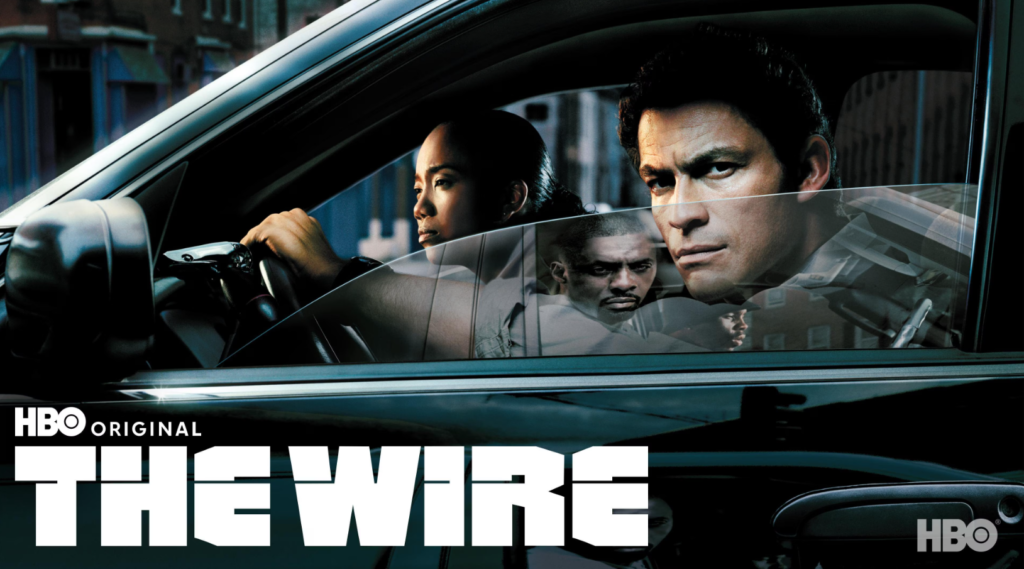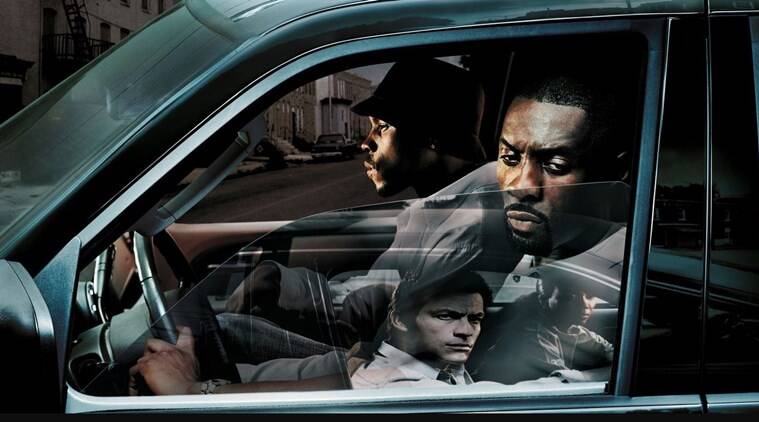
See, the thing is, you only got to fuck up once. Be a little slow, be a little late, just once. And how you ain’t gonna never be slow? Never be late? You can’t plan for no shit like this, man. It’s life. -Avon Barksdale
HBO’s The Wire is often heralded as one of the greatest television series of all time. Created by David Simon, a former police reporter for the Baltimore Sun, the series is set in Baltimore, Maryland, and intricately explores the city’s various institutions and their impact on individuals and communities.
The Wire is much more than a crime drama; it is a profound social commentary on the state of urban America. The show is renowned for its realistic portrayal of urban life and its deep dive into the complexities of societal structures. Each season of the series focuses on a different facet of Baltimore’s institutional landscape: the illegal drug trade, the seaport system, city government and bureaucracy, the school system, and the print news media. This multi-layered narrative approach has drawn comparisons to the literary works of Charles Dickens, particularly for its detailed social commentary and character development. The Wire highlights the futility of the war on drugs, showing how the cycle of violence and poverty perpetuates itself. Moreover, the series offers a scathing critique of the American Dream, exposing the social inequalities that make it unattainable for many. The show portrays a Baltimore where the gap between the rich and the poor is stark, and where opportunities for upward mobility are limited. This theme is explored through the lives of characters from different socioeconomic backgrounds, from the impoverished residents of the city’s housing projects to the middle-class professionals working in its institutions. The series does not offer easy answers or solutions; instead, it presents a nuanced and often bleak picture of reality. David Simon, the creator, has emphasized that the show is “really about the American city, and about how we live together. It’s about how institutions have an effect on individuals.” This commitment to realism is one of the reasons why The Wire has been described as “literary television” and compared to the works of great modern literature. Moreover, central to the plot of The Wire is the use of electronic surveillance and wiretap technologies by the police, which is also a metaphor for the viewer’s experience. The show frequently uses camera shots of surveillance equipment or shots that appear to be taken from the equipment itself to emphasize the pervasive nature of surveillance in modern life. This theme is particularly relevant in today’s context, where issues of privacy and state surveillance are hotly debated.
The Wire intentionally blurs the lines between good and evil, challenging the traditional dichotomy often seen in police procedurals. The show portrays drug dealers and criminals in a sympathetic light, while also highlighting the flaws and moral ambiguities of the police force. This approach flips the conventional narrative, making viewers question their own perceptions of morality and justice. For instance, characters like Omar Little, a stick-up man, and Bubbles, a drug addict and informant, are given depth and complexity that defy easy categorization. Jimmy McNulty (Dominic West), the series’ leading character (except in season 4), is a maverick detective who is both brilliant and deeply flawed. The character of this classic anti-hero protagonist is central to the series’ narrative, as he navigates the complexities of the drug investigation while dealing with his personal demons, such as alcoholism and womanizing. Other notable characters include Stringer Bell, played by Idris Elba, who is the brains behind the Barksdale drug operation. His character is a study in contrast, as he attends business school while running a criminal enterprise. The depth and complexity of the characters are enhanced by the show’s commitment to authenticity. Many of the actors spent time with real-life counterparts to prepare for their roles, and the dialogue often incorporates the local slang and vernacular of Baltimore, adding to the show’s realism.
Race and politics are recurring themes throughout The Wire, particularly in its later seasons. The show delves into the complexities of race relations in Baltimore, a city with a significant African American population. It challenges traditional stereotypes by portraying African American characters in positions of power and influence, while also highlighting the systemic racism that pervades various institutions. The character of Tommy Carcetti, inspired by real-life Baltimore Mayor Martin O’Malley, serves as a lens through which the show explores the intersection of race and politics. The fourth season of The Wire focuses on the city’s school system, highlighting the challenges faced by both students and educators. The show criticizes the “teaching to the test” approach and the lack of resources available to schools in impoverished neighborhoods. Characters like Namond Brice, a “corner kid” likely to turn to crime, and Roland “Prez” Pryzbylewski, a former police officer turned teacher, illustrate the systemic failures of the education system and its impact on Baltimore’s youth. The final season of The Wire shifts its focus to the print news media, exploring the role of journalism in uncovering and reporting the truth. The show critiques the sensationalism and profit-driven motives of modern media, which often prioritize headlines over in-depth reporting. This theme is particularly relevant in today’s media landscape, where the line between news and entertainment is increasingly blurred.
The Wire is one of the greatest – not just television shows, but pieces of art in the last couple of decades, often cited as a precursor to the current Golden Age of Television, alongside other seminal HBO series like The Sopranos. The Wire‘s exploration of race, policing, and social inequality remains relevant today, as evidenced by the ongoing debates around these issues in contemporary America. The series’ portrayal of a city struggling with systemic problems continues to resonate, making The Wire a timeless piece of television that still feels pertinent more than a decade after it concluded.
A life, Jimmy, you know what that is? It’s the shit that happens while you wait for the things that never come. -Lester Freamon
